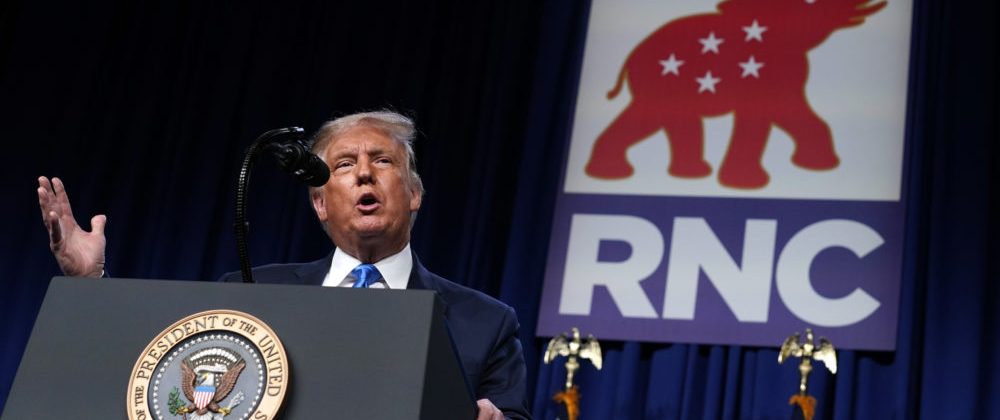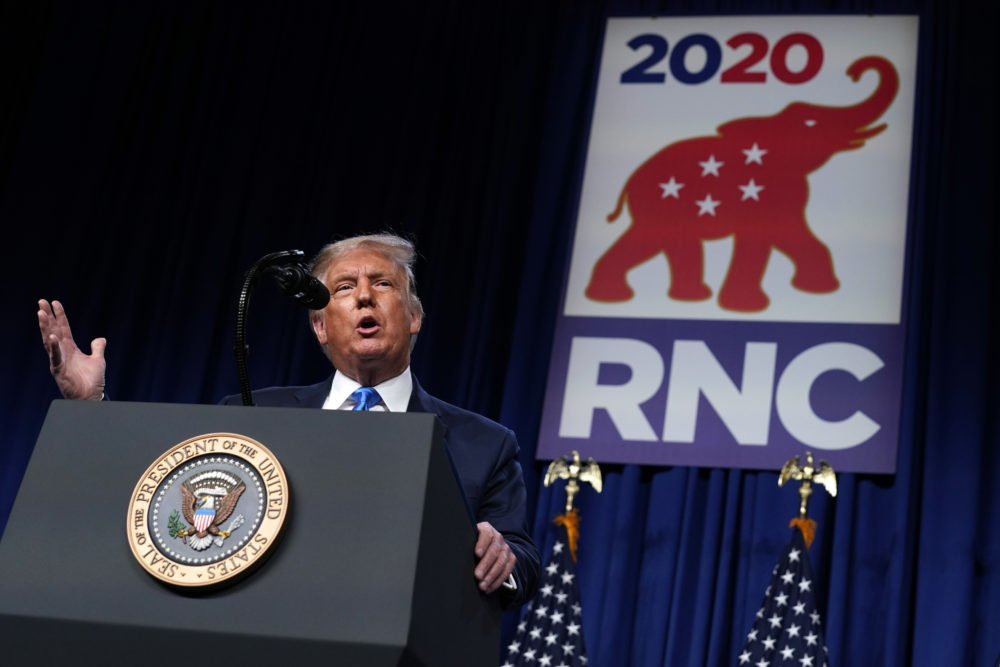

Over at The Bulwark, Nicholas Grossman breaks down the GOP into three categories:
TO UNDERSTAND WHY THIS SEGMENT of Republicans is so DeSantis-needy, let’s briefly revisit the typology of the GOP following its crackup. Donald Trump’s election and presidency split the conservative intelligentsia—the writers, think tankers, attorneys, professors, influencers, strategists, policy wonks, and other “thought leaders”—into three broad groups.
First, there were those who said “Never Trump” and meant it, opposing both the man and his movement.
Second, at the other end are some you could call “semi-fascist.” Openly anti-democracy, they try to harness Trumpist populism to their own ends. Think tankers at the Claremont Institute call for an American Caesar. The American Conservative praises Vlad the Impaler, arguing that America needs a leader “willing to be the bad guy.” Billionaire Peter Thiel argues that freedom is incompatible with democracy, and funds a variety of causes and candidates (J.D. Vance, Blake Masters, etc.). Fox News host Tucker Carlson belongs here too, with his Russia-friendly coverage of the Ukraine war, and promoting the “great replacement” conspiracy theory.
Third, there’s what is probably the largest category: the rationalizers. Here you’ll find many media figures, donors, political operatives, and politicians. Loyal partisans, committed culture warriors, and anyone chasing the MAGA audience, appealing to small donors, seeking proximity to power, or just trying to stick with the team.
Some of these accepted Trump as the avatar of the American right, and backed him until after his presidency when they could cheer a Republican challenger. Others went anti-anti-Trump, professing to disapprove of the president, and rarely defending him outright, but rarely criticizing him either, focusing instead on attacking his critics.
Rationalizers criticized Trump on background to reporters, but not in public. Or they’d express disagreement in public, but merely on political strategy, not principle. Or maybe, when things got egregious, they’d say something on principle. But not too strenuously—down that road lies excommunication, as with former Rep. Liz Cheney—and usually with caveats that Democrats are worse.
No matter what happened, no matter what they said in public or private, the rationalizers kept coming back. They could not, would not make a public break with the party or a final break with Trump.
The central argument of Grossman’s piece is that the “rationalizers” need DeSantis to win the nomination.
Read the entire piece here.
It is possible to categorize conservative evangelicals into three similar groups:
- The never-Trumper evangelicals. These are the so-called 19% to whom I dedicated Believe Me: The Evangelical Road to Donald Trump. They believe Trump is bad for America and the evangelical embrace of his presidency was bad for the church.
- The “new King Cyrus” evangelicals. These are the so-called “prophets” and other Christian Right activists who see Trump as a messenger from God.
- The evangelical rationalizers. These are the evangelicals who are not happy they have to defend Trump, but they will so do because he has delivered for them on abortion, the Supreme Court, “religious liberty” and Israel. I am guessing most Trump-voting evangelicals fall into this category.
The evangelical rationalizers would really like to see DeSantis get the nomination so they don’t have to keep carrying water from Trump.